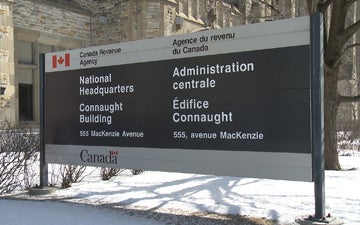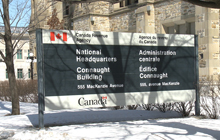A Canadian tax lawyer's perspective of tax audits of COVID-19 tax fraud claims

The government will be looking out for those attempting to abuse the system, says David Rotfleisch
 |
There are two types of tax audits initiated by the Canada Revenue Agency, explains David J. Rotfleisch, CA, CPA, JD, of Rotfleisch & Samulovitch P.C. |
COVID-19 Benefits and Subsidies
TORONTO – To assist individuals and businesses weather the economic downturn accompanying the ongoing COVID-19 pandemic, the Canadian government has introduced a number of COVID-19 subsidies and benefits. These include the Canada Emergency Relief Benefit ("CERB") and Canada Emergency Wage Subsidy ("CEWS"). Once pandemic measures ease, our firm expects the Canada Revenue Agency (CRA) will begin attempting to identify those who have improperly claimed COVID-19 benefits and subsidies. [See "CEWS forms for COVID-19 relief will lead to tax fraud, fuel cash economy."] Those who have been improperly claiming these benefits and subsidies may face tax fraud enforcement action. To identify these taxpayers, the CRA will begin tax auditing claims of COVID-19 benefits and subsidies.
Audit Process
Canada uses a self-reporting tax system. Taxpayers prepare and file their own taxes. Each taxpayer is responsible for reporting their income, expenses and claimed credits in manner the taxpayer feels best reflects the circumstances. The Canada Revenue Agency uses tax audits to periodically verify individual taxpayers are correctly self-reporting their taxation circumstances, and to catch taxpayers who are misreporting or underpaying their taxes or committing tax fraud.
The Canada Revenue Agency's tax audit process typically takes one of two forms. The first form of tax audit is often called a Desk Audit. A Desk Audit is a standard form letter sent to a taxpayer asking them to provide certain documents supporting a specific claim on a tax return. For example, a taxpayer who claims the tuition tax credit may receive letter asking him or her to provide documentary proof of enrollment in a university or college. These are fairly simple tax audits in most cases, but can occasionally lead to the CRA or taxpayer uncovering bigger issues.
The other form of tax audit is where the CRA targets a specific taxpayer. These tax audits will usually begin with an audit proposal. In these tax audit proposals, the CRA informs the taxpayer the CRA intends to assess or reassess the taxpayer in a particular manner. The taxpayer is invited to provide submissions and documents refuting the CRA's position. In response to the submissions, the tax auditor will either assess according to the proposal, reassess the taxpayer based on the information available or decline to assess the taxpayer. These tax audits can be very complex and it is always prudent to seek the advice of Canadian tax lawyer when receiving an audit proposal.
Taxpayers should be aware the CRA has the authority to request information from third parties to verify that taxpayers are not improperly omitting relevant information to their benefit. These third parties could be other government departments, such as confirming with Service Canada whether a CERB applicant applied for Employment Insurance, or private third parties such as obtaining employment records from an employer.
COVID-19 Benefits or Subsidies Tax Audits
The CRA will presumably use both tax audit types for COVID-19 benefits or subsidies audits. For example, those who have claimed CERB should expect the probability of receiving a standard form letter asking them to demonstrate proof of income. Taxpayers claiming the CERB, CEWS and other subsidies and benefits should keep copies of documents which may be relevant to proving they correctly claimed their COVID-19 benefits or subsidies.
Tax Fraud Enforcement Action
Taxpayers who incorrectly claimed COVID-19 benefits or subsidies may simply be required to pay back the incorrectly claimed amount. However, at time of writing this article, the Canadian government is deliberating on additional measures to effectively punish taxpayers who knowingly claimed COVID-19 benefits or subsidies they were not entitled to. These measures will include penalties and potentially criminal prosecution for particularly grievous tax fraud offenders.
COVID-19 benefits or subsidies have come at substantial cost to the government, and with likely decrease in collectable income tax and GST/HST, the government will be looking out for those attempting to abuse the system. The best protection against an audit where the CRA decides you filed incorrectly is taking preventative steps. Before applying for a COVID-19 benefit or subsidy, ensure you qualify.
David J. Rotfleisch, CA, CPA, JD is the founding tax lawyer of Rotfleisch & Samulovitch P.C., a Toronto-based boutique tax law firm and is a Certified Specialist in Taxation Law. He appears regularly in print, radio and TV and blogs extensively. With over 30 years of experience as both a lawyer and chartered professional accountant, he has helped start-up businesses, resident and non-resident business owners and corporations with their tax planning, with will and estate planning, voluntary disclosures and tax dispute resolution including tax litigation. Visit www.Taxpage.com and email David at david@taxpage.com.









(0) Comments